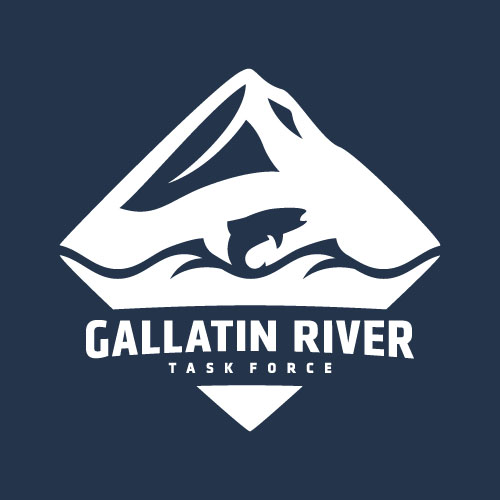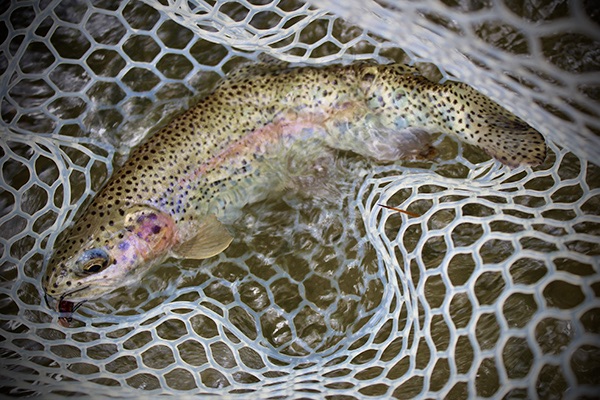As temps warm, we’re all raring to get back outside and stay there, passing the time along our riverbanks, trails, ridgelines, and shorelines.
In the Upper Gallatin watershed, we enjoy nearly unencumbered access to outdoor recreation, but with that access comes responsibility. Our actions have impacts, whether we’re fishing, floating, biking, or hiking.
By taking small steps to mitigate that impact, we can guarantee that the natural resources—especially our aquatic resources—remain healthy and abundant for future generations. Here are tips to adopt as you enjoy your summer outside.
Anglers
For trout-chasers, river stewardship is a no brainer. We spend our days literally knee-deep in the Gallatin, seeking out the healthiest water-dwelling wildlife. How can we keep that resource healthy?
For starters, practice correct catch and release. Keep fish wet, only taking them out of the water for a quick photo. Consider barbless hooks to reduce additional physical damage to fish. And always clean, drain, and dry your gear to prevent the spread of aquatic invasive species.
Limit your access to established routes along the riverbank to reduce harmful erosion and park your vehicles on hard surfaces like asphalt pull-outs. Doing so protects riparian vegetation that keeps water cold and provides habitat for trout.
Boaters
Running the Gallatin’s infamous whitewater is a rite of passage for any regional river rat, but as populations soar, so too does river traffic—and highway traffic traveling to and from put-ins and take-outs. In a normal year, we’d be strong advocates for carpooling. With COVID still a threat to public health, we suggest limiting your exposure to folks within your household. This year, that means no hitchhiking back to your vehicles, unless you’re in the bed of a pickup.
On the river, pack out what you packed in. Make sure wrappers, plastic bottles and food scraps come off the water with you. When launching and taking out, use established access points, being sure to check out the new sustainable kayak launch at the Moose Creek Recreation Area. This summer, the Gallatin River Task Force will be installing another slab launch near Deer Creek as part of their River Access Restoration Program.
Trail Users
Off the river, our recreation still impacts water quality. Hikers, bikers, trail runners and backpackers all have a part to play. If you’re using a trail close to a stream or creek, like Porcupine or Ousel, consider how erosion runs off into that nearby waterway. Always clean up after your dog (and yourself). Pet and human waste pollutes ground and surface water, potentially fouling drinking water.
Backpacking into the mountains for a wilderness weekend? Understand the tenets of Leave No Trace and practice them devoutly. Camping, cooking, and gathering near water resources can cause pollution, and high-alpine environments are particularly sensitive to outside influences.
Horsepackers
Nothing says Montana like a pack trip into the mountains. High in the saddle, it’s easy to get lost in the romance of the ‘Old West’, but there’s nothing romantic about piles of horse poop and invasive species.
Horses and other pack animals can create lasting consequences for aquatic ecosystems, if improperly managed. Be conscious of where stock travel, graze, and water. Several animals all occupying the same space for a few days can cause real harm, to both the natural and recreational resources. Stick to trails instead of creating new ones and cross waterways at established bridges if available.
As the saying goes, visitors come to Montana for the winters but stay for the summers. The season is short, but oh so sweet. Small changes to our outdoor behavior can keep it that way as well as keep us from loving this place to death.
This post originally ran on explorebigsky.com.

